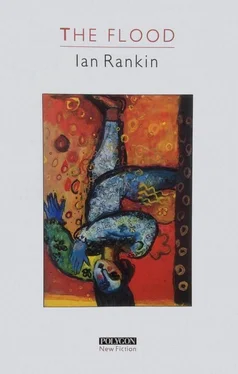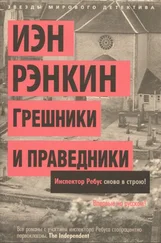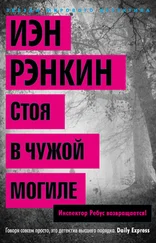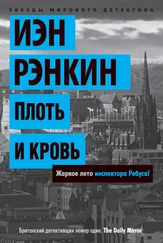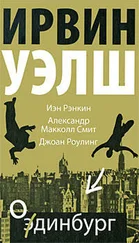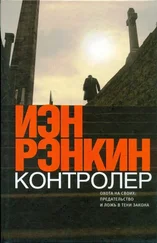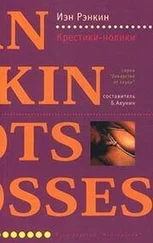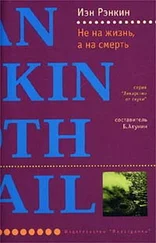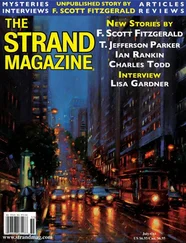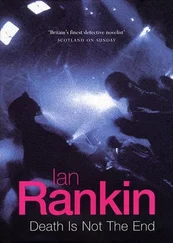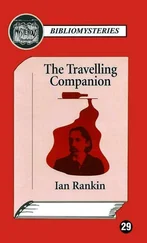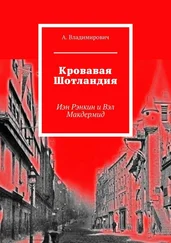The thing in the purple liquid looked as if it had drowned in that jar. Mary could imagine it twisting and pushing at the glass, but being unable to escape, rising to the surface to find that a lid was holding fast above it. No air, only an intake of purple water and the darkness, the goblins, the swathe of darkness, the choking in the throat and the final urge. The lid not budging.
Mary let out a scream.
She went to bed early and her mother wiped her brow, telling her to try to get some sleep. The light was left on in the bedroom. Neighbours were still dropping in to enquire about her, but they were kept downstairs, and though Mary leaned out of bed with her ear to the floor, still she could not make out much of the muted conversations. She felt like a leper. The quiet in and around the house was funereal, and Mary hoped that she would die soon. She tiptoed into her parents’ bedroom and stole her mother’s vanity mirror through to her own room. In bed again she examined her hair and saw how it aged her pale face, how it seemed someone else’s hair, even when she pulled it. Not a girl’s hair, but the hair of an old woman, a woman no one would ever marry.
When she heard her father’s boots heavy on the stairs again, she hid the mirror under her pillow and lay down as if asleep. Her father entered the room quietly, his breathing desperately controlled, and touched ever so lightly her silvery hair. Mary jumped up and clung to him, the tears gurgling in her throat. He wept with her, sitting himself on the edge of the bed. ‘Great God Almighty,’ he said. ‘Sshh, sshh.’ He patted her softly, cradled her, and finally calmed her so that she was lying down again. He lay on his side beside her and told her that the two big boys had got a hiding from their fathers, and had been hunted by her mother besides. He told her that one of them, Matty, would be starting work at the pit in a few weeks and would get a thumping from him at that time, just to let him know what was what. He told her a story about a princess with long silver hair and about the prince who saved her, but he stumbled as he spoke, and Mary could see that it was not a real story at all, but one that he was making up and that had never been true. Sometimes her father treated her as if she were still a little girl. She was ten, she often told him, and did not believe in made-up stories any more. Stories had to be true; stories had to be real. Her father’s stories were those of a tiny child with a will to believe, and they seemed the only stories he had. He patted her hair again as if it were a kitten, then told her that she must try to get some sleep, for she would have to go to school tomorrow.
No, she thought when he had gone. She could not go back to school so soon. But it was true: the summer was already over. She would be ill. She would be ill until her hair turned black again. She could not go to school when she was so very ill. Her friends would visit her in her bedroom and would not comment upon her hair, because hair that colour suited someone so very ill.
When her mother wakened her with a shout next morning, Mary leapt out of bed and rubbed her eyes. She whistled as she dressed. Tom was still asleep, and she hit him with his own pillow, reminding him of the new term, and that he was starting at secondary school today and wasn’t he excited? He groaned with his head beneath his pillow.
At the breakfast table her mother sat with a beautiful shawl around her shoulders. Mary sat down and took a bite from a slice of toast on her plate. Her mother smiled warily.
‘How are you this morning, pet?’ she said. Only then, in that scalding second, did Mary remember: the hot burn; her silver hair; her illness. She spat out the grey lumps of toast and ran upstairs to be sick.
Mary learned quickly the rules of the game. To defeat the disability she had first to ride with it and make a casual joke of it in company, never admitting the pain inside, turning it to her advantage. In this way, she soon found her friends to be much the same as ever, and discovered that people accepted her, though with pity.
There was still some suspicion, naturally, though few doubted the ability of a shock such as she had had to turn a person’s hair white. Actually, some black did reappear in her hair. She became accustomed to brushing it in front of her new mirror. In a school full of nonentities, she found her identity easier to achieve than most. She was a kind of celebrity. Her mother did not take her back to see Dr McNeill and his purple jars.
Two weeks after school restarted, however, there was a horrible accident at the pit. Matty Duncan had been working there for a single day. On that first day he had been knocked almost unconscious by Mary’s father. He had expected it, of course, and assumed that would be the end of it. He went to work on the second day with a careful smile on his shifting face. He was a wage-earner now. His parents were pleased that some more money would be coming in, and Matty himself was only too glad to be out of school at long last and in his rightful place beside the other men of the village. He watched the wheel turning above the pit-cage as it creaked and brought the iron cage to the surface. He stepped in with the others and muttered the usual comments with them, careful to be respectful at all times. He descended into the scoured earth, slipping below ground level, deeper than the open-cast quarry, deeper, it seemed, than everything in the world. The descent took an age, the ropes creaking and shuddering. Matty thought of his first wages, and then, with a horrible opening of some door which he quickly closed, of the many days and weeks and years he could spend descending this shaft. A lifetime of burrowing, of coughing and spluttering and getting dead drunk on a Saturday. No, he thought, that’s not for me. This was just pin money. When he had saved enough he would go to England, or even America. He would not be trapped into living an underground life like the poor buggers around him. First things first, though. Before he began saving he had to buy himself a record-player and a motorbike and get together some money for a holiday at Butlins with Tarn Corrie.
The cage jolted to a stop. Someone pulled the gate back and they stepped out into the cold, dripping darkness. As he walked along the tunnel, Matty’s head was full of other things he would do with his money. Cigarettes. Beer. No problem.
There was a rumbling from ahead. He peered in front of him, shining his torch along the tunnel. He moved to the front of the pack, showing his keenness. The others were mumbling.
‘By Christ,’ said one of them, ‘that could be a cave-in up ahead.’ They moved forwards a little, and the rumbling grew louder. Much louder.
‘Get back to the fucking cage!’
They were running, and suddenly Matty was at the rear of a line that scurried too slowly towards the light at the end of the shaft. He could not get past the older, lumbering men. The bags over their shoulders slapped against the sides of the narrow passage. Great shadows were being cast everywhere, as if their pit-lamps were searchlights shining into the night sky. Then the light was brighter, a sudden eruption of daylight. Matty turned towards the rumbling and the fireball hit him full in the face and body, before flying up the shaft towards the ascending and empty cage.
They stood around the young man’s body. Their backs and hair were singed, some badly, but the boy had taken the brunt of it. His whole front was black, charred as if he had spent an infernal lifetime digging coal. The smell of burnt flesh was overpowering. His hair was nothing, a few curled and brittle stalks. His face had melted back to the raw flesh. One man retched quietly in the corner while the cage descended and a crowd at the surface shouted anxiously through the smoke down the echoing shaft of sunlight.
Читать дальше
